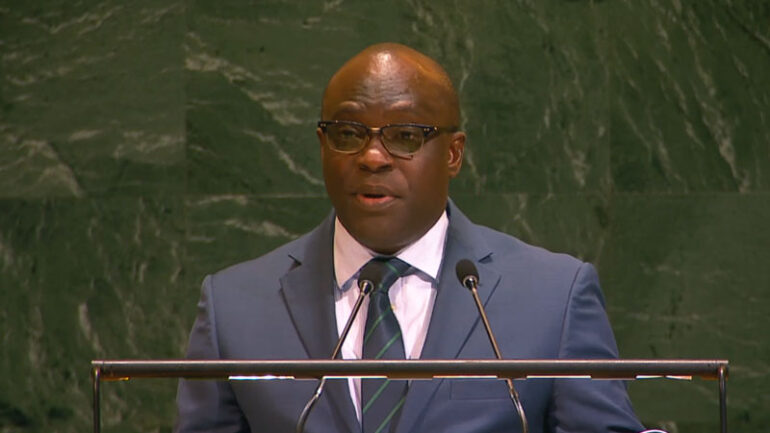Responsibility to protect: 20 years of commitment to principled and collective action

Ambassador Harold Agyeman
Ghana’s Representative to the United Nations
General Assembly, United Nations HQ
New York, July 1st 2025
20TH ANNIVERSARY OF THE RESPONSIBILITY TO PROTECT AND THE PREVENTION OF GENOCIDE, WAR CRIMES, ETHNIC CLEANSING AND CRIMES AGAINST HUMANITY
At the outset, allow me to express Ghana’s appreciation for the organisation of this important meeting to mark the 20th anniversary of the Responsibility to Protect.
In 2005, when Member States endorsed the Responsibility to Protect (R2P) at the World Summit, we affirmed our collective support for the principle that in the face of genocide, war crimes, ethnic cleansing, and crimes against humanity we would not remain paralysed.
Indeed, this was the only sensible option to take in the aftermath of the genocide in Rwanda and the massacres at Srebrenica as well as what was taking place in Darfur, Sudan at the time.
As we reflect, two decades after the adoption of this landmark commitment, we are reminded, through the insights of the Secretary-General’s recent report, of both the enduring relevance of R2P and the challenges that persist in its implementation. The Secretary-General’s report underscores a troubling rise in atrocity crimes, a deepening protection gap, and the urgent need for renewed multilateral resolve.
Mr. President,
Ghana is of a firm conviction that collective paralysis should not be allowed to set in, in the face of worsening conditions of populations around many parts of the world especially in Gaza as well as in places such as Myanmar. Together, we must shake ourselves from the slumber of collective inertia and rise to our common responsibility to act, when required, and to protect, where needed.
In doing so the regrettable lessons of history should be carefully considered and every effort made not to travel the erroneous paths of 2011 when the Security Council invoked R2P in resolution 1973 for the crisis in Libya, but others envisaged the resolution for their own ends – regime change.
The mistrust that has developed since the Libyan crisis is deep and the motives that drive the operationalization of the principle of R2P would forever be questioned. However, global responsibility cannot be ignored for those most in need. The work of repairing trust would necessarily be long and arduous, and rebuilding faith in the principle requires all of us to take an honest look of ourselves in the mirror of truth.
Mr. President,
In renewing our resolve, we must embrace with new understandings the three-pillar strategy of 2009 and define universally acceptable ways by which we support protection for people over whom no protection is afforded by their State.
It is disheartening, and highly unacceptable, that in a place like Gaza, where repeated cycles of violence have devastated countless civilian lives, the principle has been made to look another way in silence. How can it be right that innocent Palestinian civilians, whose very life-supporting systems have been destroyed by the occupying power, would also be brutally and callously killed when they seek for food and humanitarian assistance?
Today, we must acknowledge that R2P faces a crisis of confidence, not of its ideals, but of its implementation. For R2P to remain a vital framework for prevention, protection, and accountability, the failings we have seen should be addressed by a reinvigoration of political will and a commitment not to look away when the truth is inconvenient.
In this regard, Ghana emphasizes that the Responsibility to Remember should be a guiding principle. When we preserve the truth of past atrocities, honour the memory of victims, and confront denial, we strengthen the foundations upon which R2P stands.
Today should therefore be a call to reaffirm our shared humanity and to ensure that when the alarm sounds anywhere in the world, we do not look away. Only by that way, do we make the R2P principle relevant, both as an expression of political commitment and as a blueprint for action to prevent and end genocide, war crimes and crimes against humanity.
In conclusion, Ghana reaffirms her commitment to paragraphs 138 and 139 of the 2005 World Summit Outcome Document, on the Responsibility to Protect, and joins in the call for the consistent and balanced implementation of the principle on the basis of the three-pillar framework. Ghana would support the required multilateral efforts to ensure the global community never again fails to stop the mass atrocity crimes of genocide, war crimes, ethnic cleansing and crimes against humanity.
I thank you.
